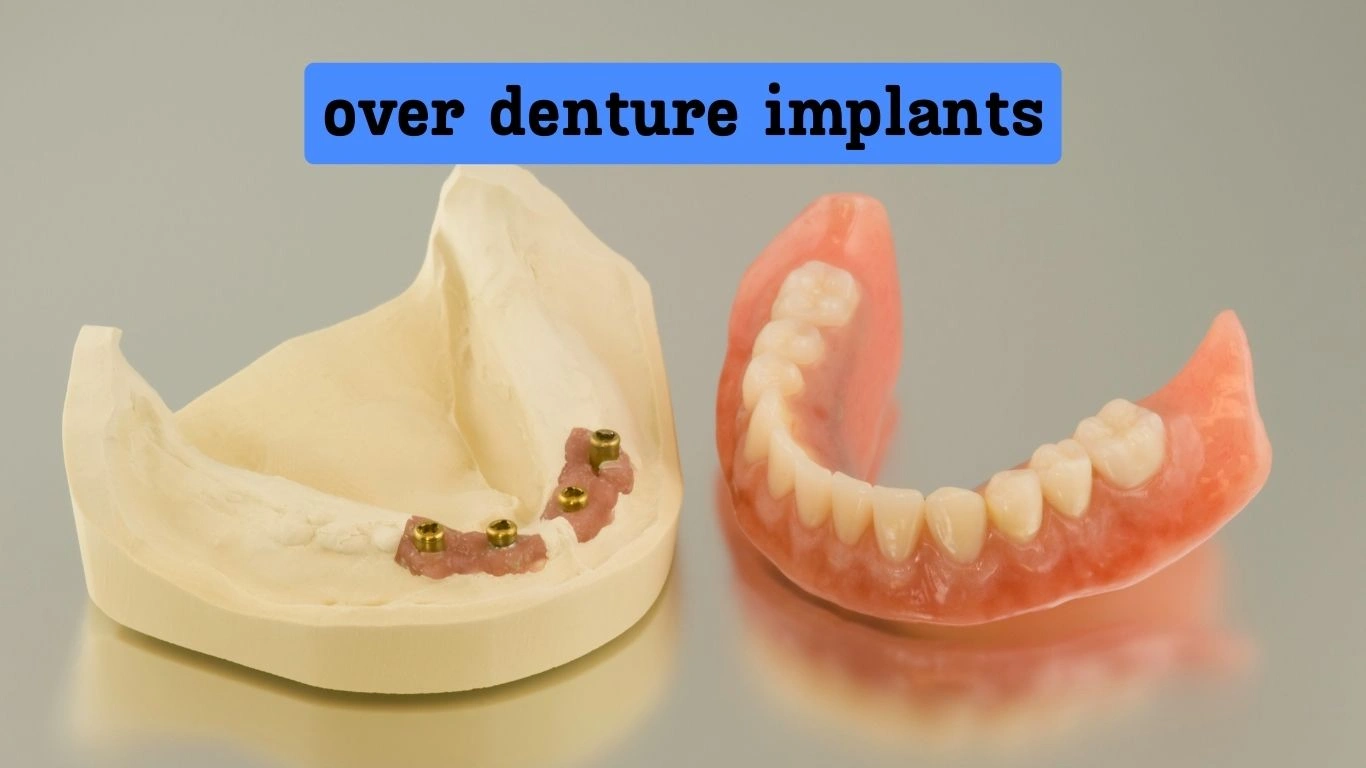Over Denture Implants: A Complete Guide to a Secure Smile
Living with missing teeth can cause difficulty in eating, speaking, and smiling with confidence. Thankfully, modern dentistry offers many solutions, and one of the best among them is denture implants. This advanced treatment provides stability, comfort, and a natural appearance that traditional dentures often fail to deliver. In this guide, we will dive into everything you need to know about denture implants, from the procedure to their amazing benefits and more.
What Are Over Denture Implants?
denture implants are dentures that connect securely to dental implants placed in your jawbone. Unlike traditional dentures that rest loosely on the gums, denture implants snap onto small implants, providing a tight and stable fit. Patients with denture implants often report feeling more confident while eating, speaking, and smiling.
Instead of relying on adhesives or suction, these dentures use implant attachments that lock them firmly into place. This extra security means fewer diet restrictions and better functionality. Plus, denture implants help protect your jawbone from shrinking over time.
How Denture Implants Are Placed
The journey to getting denture implants typically begins with an initial consultation. During this visit, your dentist checks your oral health, bone density, and discusses your treatment options. If needed, a bone graft may be recommended to create enough support for the implants.
The actual placement procedure starts with inserting titanium dental implants into the jawbone. These implants act like artificial roots, providing strong support. After implant placement, healing can take three to six months. During this healing time, the bone fuses with the implant in a process called osseointegration. Once healed, a custom-made overdenture is crafted to snap onto the implants.
The beauty of denture implants lies in their ability to combine the best of both worlds: the removable nature of dentures and the stability of dental implants.
Here’s a simple breakdown of the typical procedure:
| Step | Description |
|---|---|
| Consultation | Dental exam, bone evaluation, and treatment planning |
| Implant Surgery | Placement of two to four implants into the jawbone |
| Healing Period | Waiting for implants to bond naturally with the bone (3-6 months) |
| Overdenture Creation | Taking impressions and creating a custom-fit overdenture |
| Final Placement | Attaching the overdenture securely onto the implants |
Benefits of Choosing Denture Implants
Patients who opt for denture implants enjoy several life-changing advantages. First, they no longer have to deal with slipping or shifting dentures. Chewing and speaking feel almost like having natural teeth again. Another important benefit is that implants stimulate the jawbone, preventing bone loss that usually occurs after tooth loss.
In addition,denture implants improve facial appearance by maintaining bone volume, avoiding the sunken-in look that traditional denture wearers sometimes experience. Oral hygiene is also simpler because removable overdentures allow better access for cleaning, reducing the risk of infections and gum problems.
Most patients find that denture implants give them back the ability to eat their favorite foods, from crunchy apples to juicy steaks, without fear of embarrassment or discomfort.
Who Is a Good Candidate for Denture Implants?

Most adults who are missing multiple teeth or all of their teeth can consider denture implants. However, candidates should have healthy gums and enough bone to support the implants. Those who lack sufficient bone may need a bone graft before implant placement.
Dentists usually recommend at least two implants for lower jaw overdentures and four implants for the upper jaw. This setup ensures maximum stability and function. Individuals who struggle with the loose fit of conventional dentures often find that switching to denture implants transforms their daily life.
Age is not a limiting factor; healthy seniors can benefit from this treatment just as much as younger adults. A personalized consultation is necessary to confirm eligibility.
How to Care for Over Denture Implants
Taking care of denture implants is crucial for their long-term success. If your overdentures are removable, you should take them out every night for cleaning. Gently brushing the implants, gums, and tongue helps prevent plaque buildup.
Use a soft-bristled toothbrush and nonabrasive toothpaste to clean your mouth and dentures. Soaking your overdentures in a special cleaning solution overnight can also help eliminate bacteria and maintain freshness. Regular dental checkups are essential to monitor your oral health and implant condition.
Following a proper care routine will ensure that denture implants last many years and continue providing comfort and confidence.
How Long Do Denture Implants Last?
Dental implants themselves are designed to last a lifetime with proper care. However, the overdenture (the part that attaches to the implants) may need replacement every 10 to 20 years depending on wear and tear.
Routine dental visits are critical to ensure that both the implants and the overdenture remain in optimal condition. Your dentist will check for any issues such as wear of attachment parts or gum health concerns.
Most patients experience many years of hassle-free use when they follow their dentist’s cleaning recommendations and maintenance schedules.
Conclusion:
Over denture implants offer a life-changing solution for people who struggle with missing teeth and unstable dentures. They provide strong support, protect your jawbone, and let you enjoy your favorite foods without fear. If you are ready to bring back your smile and confidence, denture implants might be the perfect choice. Talk to your dentist today to find out if this secure, comfortable option is right for you. A healthier, happier smile is closer than you think!
FAQs
1. How long do over denture implants last?
denture implants can last a lifetime with proper care, but the overdenture itself may need replacement every 10 to 20 years.
2. Are denture implants removable?
Yes, most denture implants are removable for easy cleaning, although fixed options are available if preferred.
3. Do over denture implants hurt?
The procedure is done under anesthesia, so there is little pain during surgery. Mild soreness after implant placement is normal and manageable.







